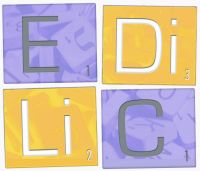Speaker
Description
L'atelier, conçu et animé au nom de l'association la caravane des dix mots à pour objectif la sensibilisation à la diversité linguistique et culturel en milieu informel. La diversité linguistique est partout : accents, variétés régionales, multilinguisme national, contacts transfrontaliers, parcours migratoires… et sa valorisation représente des enjeux sociaux, éducatifs, éthiques et citoyens. En effet, la pluralité des langues est souvent considérée comme un obstacle, une barrière qui entraverait l’intercompréhension et attiserait les conflits. L’histoire nous montre que les langues peuvent se retrouver à la fois instruments et parties prenantes dans des relations d’inégalités et de dominations entre individus et groupes sociaux. Il y a le plurilinguisme valorisé et le plurilinguisme stigmatisant ; les langues plébiscitées et les langues méprisées, porte ouverte à toutes sortes de discriminations envers les locutrices et locuteurs de ces langues.
La France s’accroche à son mythe de l’idéal monolingue qui se transmet inconsciemment dans les esprits depuis des décennies appuyé par une vision historique du bi-plurilinguisme vu comme une anomalie. Cette vision qui s’immisce dans de nombreux discours politiques et éducatifs marque inconsciemment les esprits.
Les langues sont profondément sociales et individuelles et à ce titre sont souvent le support de représentations sociales et de croyances.
Nous proposons un atelier qui donne à voir et à entendre la pluralité des langues et légitime leur usage dans l’espace public.
Content/contenu/Inhalt 2
The workshop, designed and run on behalf of the association la caravane des dix mots, aims to raise awareness of linguistic and cultural diversity in informal settings. Linguistic diversity is everywhere: accents, regional varieties, national multilingualism, cross-border contacts, migratory routes... and promoting it has social, educational, ethical and civic implications. Indeed, the plurality of languages is often seen as an obstacle, a barrier that hinders mutual understanding and fuels conflict. History shows us that languages can be both instruments and stakeholders in relations of inequality and domination between individuals and social groups. There is valued plurilingualism and stigmatising plurilingualism; languages that are popular and languages that are scorned, opening the door to all kinds of discrimination against the speakers of these languages.
France clings to its myth of the monolingual ideal, which has been unconsciously passed on in people's minds for decades, supported by a historical view of bi-plurilingualism as an anomaly. This vision, which permeates much political and educational discourse, has an unconscious influence on people's minds.
Languages are profoundly social and individual, and as such are often the medium of social representations and beliefs.
We are proposing a workshop that shows and hears the plurality of languages and legitimises their use in the public arena.
| Title/ titre/Titel 2 | Thinking about and exploring languages |
|---|

